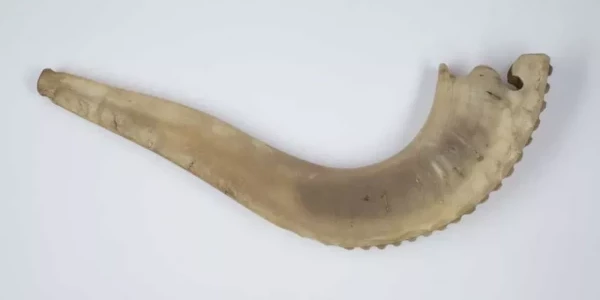Rosh haShana 5782
High Holiday greeting from the ICCJ President Liliane Apotheker
03/09/2021 | Na stronie od 04/09/2021

Source: ICCJ
Dear Friends,
The High Holidays are on our doorstep, coming in early on our common calendar this year. Once again Jewish communities around the world are wondering how to celebrate them without putting the lives of their members at risk. We had hoped for a return to what we might call the “before Covid era”, but it is certain now that this is not going to happen, and masks, outdoor services where possible, social distancing and services on Zoom for those that agree to do it that way, are once more on the agenda. To most of us this is a huge disappointment.
Antisemitism is on the rise in many countries, voicing some of the vilest expressions of hatred in order to single out Jewish people and marginalize them in a world that could have been united in fighting a common enemy: a very contagious virus.
None of this will prevent us from celebrating these days that mark the creation of the world, a creation that God has called “tov”, good. Once we gather whether it be on Zoom or in person, our minds and hearts will be fully attuned to our meaningful liturgy, to the repair of our souls, to the very strong sense of community that we feel.
Covid seems to be here to stay and, in a way, it has almost become familiar to us. The extraordinary progress made by science that has rapidly provided us with vaccines allows us to regain confidence in our future.
Climate change and its terrible forbearing symptoms of devastating floods and fires in so many places are on all our minds now and will probably push the anxiety generated by Covid into the background.
The environmental crisis is not a new subject as Covid was 18 months ago. We have known about this for more than two decades. Indeed our annual conference in Sidney in 2007 was on this very topic. Our member organizations in Australia and New Zeeland have been on the forefront of this issue, alerting us to this continuously. The ICCJ executive board published a statement on the Global Ecological crisis in the summer of 2019, exactly two years ago, and many of our member organizations are dedicating webinars to this subject. Nothing new then, except perhaps that this year we have come to realize the extreme urgency of the danger incurred by our planet. It is happening now and to us, not to the next generation, not in some far away and unknown land.
I have mentioned above that it is Covid that has made us realize in a deeper way than ever before the interrelatedness of humanity. The environmental catastrophe which confronts us all has made this awareness even more acute. It might become a reality which surpasses Covid in horror. We know that we can and must act on this, that only our actions will stop the worst scenario from becoming reality, and that meanwhile we are witnessing devastation taking place on a planetary scale.
Our planet is entrusted to our care, and we are careless.
On Yom Kippur, we collectively and individually examine our behavior and atone for our wrongdoings. I must admit that I am often thrown off by the list of sins that we confess to, there are so many things on it that I would never do. Well perhaps, not knowingly do, but unwittingly?
Have I ever understood what unwittingly really means?
Sinning unwittingly takes on a new meaning when thinking about the environment, increasing my awareness of my habits, many unintentional or simply careless, and yet with long term consequences. In this like in so many other things, we, humans, are creatures of habit and old habits die hard.
I guess my point is that I will no longer be able to consider these sinful habits as unintentional or unwitting, to plead not guilty, because I have come to realize inescapably that the consequences of my behavior will severely impact my life and the lives of the coming generations.
If Covid has demonstrated the interrelatedness of humanity, climate change proves our human interrelatedness with nature. I am not sure I was really conscious of that before.
I have no doubt that in many synagogues around the world this theme will be addressed during the High Holidays. I hope that for most of us it will be an awakening to its extreme urgency. We must no longer comfort ourselves with denial in the face of reality, but rather ask ourselves what we can and must do as individuals, as communities and as partners in dialogue. The High Holidays bring us beautiful prayers that restore and repair the soul after we have gone through the necessary soul-searching process. I cannot help but think that this process is exactly what we need right now. We will celebrate the Creation of the world with fervor, a world that is good and entrusted in our care. We will question our behavior with keenness and sincerity, and we will decide in an attentive and caring way to amend our habits. Hope for the future resides in reversing the irreversible: the liturgy of the High Holidays conveys that this is entirely possible. What could be more appropriate than to do that?
May the coming year of 5782 be one of blessings for all humanity!